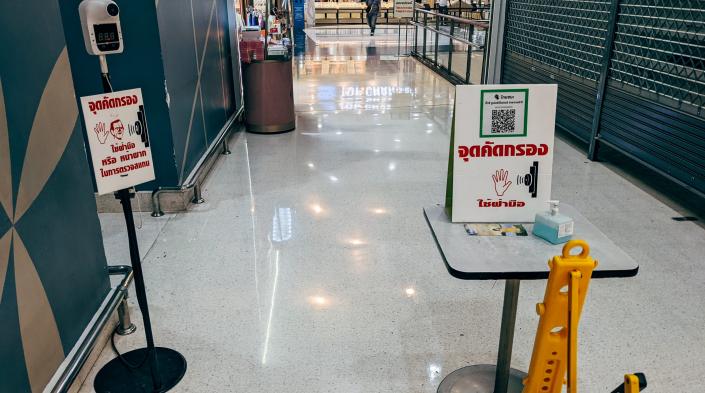 Entrance control for COVID-19 at a shopping center in Bangkok, Thailand. Photo: Markus Winkler on Unsplash (https://unsplash.com/photos/TbDYOZ1ZEoM)
Entrance control for COVID-19 at a shopping center in Bangkok, Thailand. Photo: Markus Winkler on Unsplash (https://unsplash.com/photos/TbDYOZ1ZEoM)
Page last updated on
APC welcomes the invitation of the Office of the High Commissioner for Human Rights to reflect on the impacts of COVID-19 on the exercise of economic, social and cultural rights within the context of addressing inequalities in the recovery from the COVID-19 pandemic. The pandemic has presented challenges for human rights and, in some cases, responses by governments have revealed fault lines that challenge international human rights law. While we recognise that these were and are extraordinary times, states’ responses to the crisis should be proportionate and planned and should avoid curtailing human rights.
It is widely recognised that access to the internet and technology is indispensable to achieving green economic growth. The internet is an enabler of economic, social and cultural rights, and at the height of the COVID-19 pandemic, with lockdowns enforced in many countries across the world, it showed its potential to enable the right to work, including the right to work in safe and healthy working conditions; the right of trade unions to function freely; the right to social security; the right to health; the right to education; and the right to take part in cultural life and to benefit from scientific progress. However, the pandemic also vividly exposed the negative rights implications of the use of technology by states to mitigate the effects of the pandemic, as well as the implications for those without meaningful affordable internet access.
This submission draws on these lessons, with a specific focus on countries in the global South, in order to create a limited set of considerations for governments who view the internet as central to their plans for inclusive, green economic growth. The submission focuses on access to the internet; rights-based decision making in government programmes; privacy and data protection; and the sustainable use of technology.
Read the full submission here.


